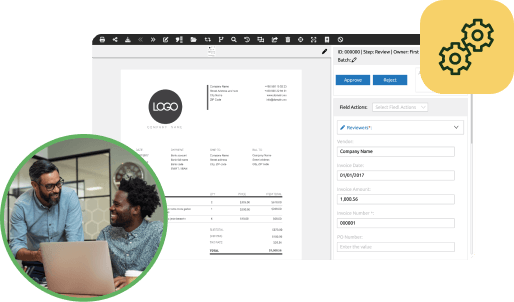Although the accounting process has changed very little over the years, certain events can force accounting departments to adopt new ways of accomplishing crucial tasks.
For instance, the COVID-19 pandemic has forced accounting teams to do their tasks away from the office. This shift introduced these teams to very tough challenges—which led to the formation of best practices for supporting remote accounting staff.
What challenges do remote accounting teams face?
Offices provide accountants with the environment and resources they need to complete their tasks. Having to work remotely in the middle of a pandemic means accountants face challenges such as the following.
Inferior technology
Being away from their workstations forces many accountants to use their personal computers and internet connection for office work.
Unfortunately, these devices may not be powerful enough to handle accounting tasks as efficiently as company-issued machines can. Staff-owned devices are rarely equipped with enterprise-grade cybersecurity tools, making them vulnerable to cyberthreats.
Possible distractions
Working from home blurs the distinction between an accountant’s personal and professional lives. The need to prepare meals, go on supply runs, take care of their loved ones, and meet other responsibilities can distract them from their tasks and deadlines.
External high-pressure stressors
The pandemic caused countless problems for many people. To illustrate, your accountants may have family members who lost their jobs during the pandemic.
This places a great strain on their family’s finances, and the resulting stress may affect your staff’s efficiency.
Fear and other mental issues
The uncertainty that comes with the pandemic, as well as the loss of friends and family members to the disease, can be burdensome to your employees’ emotional and psychological well-being.
These may affect their concentration and motivation to work.
What best practices can help your accounting team?
The challenges that come with remote work can be alleviated with the right strategies. These best practices can help your team remain efficient and productive
1. Teach staff to stagger data processes to ensure that weaker devices don’t falter
Instead of transferring financial data to ledgers and statements immediately once they become available, consider processing information in several batches throughout the day.
With this approach, transactions are grouped and processed by sub-ledgers before they are finally transferred to your ledgers. This strategy is ideal except for clients that require real-time accounting.
In a work from home arrangement where your accountants are prone to distractions, batch accounting provides ample time for your staff to review entries and catch errors. It also allows team leaders to compartmentalize and manage their subordinates’ workloads more effectively.
The task of handling each batch can be assigned to whoever is available and adjustments can be made as needed.
2. Prepare staff to deal with distractions and other aspects of the new normal
No one knows for certain when the pandemic will end, so it’s best to adopt coping strategies for what is possibly the new normal.
Evaluate your current processes and modify them as needed to ensure that they accommodate the needs of your remote accounting team.
Here are two suggestions:
- Do virtual standups. Instead of having long, formal meetings to track your team’s workload, conduct quick virtual standups. Or better yet, use productivity and workflow apps that keep you updated on what your team members are doing, even if you don’t check on them individually.
- Permit flexible work shifts. Grant your staff a more flexible workday, which may entail giving them the freedom to work when and where they want, as long as they finish their tasks. You must, however, remain rigid with your deadlines. Timeliness is crucial in accounting, whether your team is doing it for your own company or for your clients.
3. Provide resources and assistance to improve your staff’s well-being
Stress is detrimental to your staff’s health and productivity. Here are steps you can take to address common stressors affecting remote workers during the pandemic.
- Provide financial assistance. If your company can afford it, extend financial assistance to your employees. A salary loan can help with unpaid bills and emergency expenses, and help put their minds at ease. If this is not possible, at least inform your staff of other ways to avail of assistance, such as government support.
- Promote mental health. Check if your HMO covers mental health consultations and therapy. You may refer your team to mental health professionals who can help with their problems. Additionally, make it a point to regularly check on your staff and how they’re coping so far.
4. Automate as much as possible
Investing in automation solutions will drastically reduce the amount of time and effort poured into accounting tasks. If batch accounting proves to be too slow or cumbersome for your business, automation will enable your staff to do accounting in real time. This makes tasks more manageable and less stressful for your team.
For instance, accounts payable (AP) automation solutions, which are a type of accounting software, simplify the process of extracting, organizing, and storing data from invoices and retrieving supporting documents.
They eliminate the need for manual data entry and automate three-way matching, making it possible to process and approve invoices within a few minutes.
PairSoft is a smart document management and AP automation solution designed to support accounting teams, helping them accomplish their tasks with maximum efficiency even outside the office. Learn more by scheduling a free personalized demo today.






